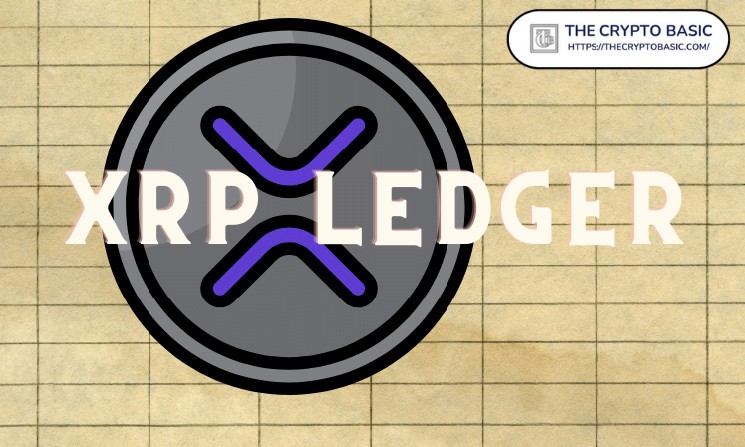XRP Ledger Was First To Support Stablecoins: Former Ripple Director

Hamilton’s statements come as dollar-pegged stablecoins have recently faced heightened uncertainty.
Former Ripple Director Matt Hamilton has asserted that the XRP Ledger (XRPL) was the first blockchain with stablecoin support.
Hamilton disclosed this in a Twitter thread on Saturday. It came in response to complaints from Joe Weisenthal, co-host of the Odd Lots podcast. Weisenthal pointed out that depositors do not see themselves as lenders to the bank, raising concerns over how they are treated as creditors when these banks fail.
Asserting that the Odd Lots podcast co-host raised an interesting point that could be explained using the XRPL, the former Ripple staff let slip that the XRPL was the first blockchain to support stablecoins, then referred to as IOUs (I owe you). At the most basic level, IOUs are documents that acknowledge debts.
1/3 Actually, this is quite an interesting point in relation to the XRP Ledger.
The XRP Ledger was the first blockchain to support what we now refer to as «stablecoins». On the XRP Ledger they were referred to as IOUs. https://t.co/Y6FAChsXl7
— Matt Hamilton (@HammerToe) March 11, 2023
As explained by Hamilton, using Circle’s USD Coin as an example (USDC), users who purchase stablecoins lend fiat to stablecoin issuers in exchange for tokenized representations on the blockchain. It works because users trust that stablecoin issuers would return their fiat on demand.
However, the former Ripple director points out that the market perception of stablecoins changed with the advent of Ethereum. According to Hamilton, people now see stablecoins as assets instead of debt obligations for fiat.
It is worth noting that firms still issue stablecoins as IOUs on the XRPL today. Recall that Bitstamp recently introduced EUR-backed IOUs on the XRPL, offering customers a gateway into the blockchain’s decentralized finance ecosystem.
Hamilton’s statements come as dollar-pegged stablecoins have recently faced heightened uncertainty. Firstly, Paxos faced enforcement action from the United States Securities and Exchange Commission (SEC), which labeled its Binance dollar stablecoin offering, Binance USD (BUSD), as an unregistered security. Now, a series of crypto-friendly bank collapses have created further uncertainty.
As highlighted in a previous report, Circle’s USDC lost its dollar peg over the weekend, dropping as low as $0.82 on Saturday after the Silicon Valley Bank collapse. It came as Circle confirmed that over $3 billion of USDC’s cash reserves were held with the bank.
Some confidence has returned to the market at press time as the FDIC assured it would cover all SVB deposits. USDC, recouping its losses, is now trading for $0.9912 on mainstream exchanges.






 Bitcoin
Bitcoin  Ethereum
Ethereum  Tether
Tether  USDC
USDC  TRON
TRON  Dogecoin
Dogecoin  Cardano
Cardano  Bitcoin Cash
Bitcoin Cash  Chainlink
Chainlink  LEO Token
LEO Token  Monero
Monero  Zcash
Zcash  Stellar
Stellar  Litecoin
Litecoin  Hedera
Hedera  Dai
Dai  Cronos
Cronos  OKB
OKB  Tether Gold
Tether Gold  Ethereum Classic
Ethereum Classic  KuCoin
KuCoin  Gate
Gate  Algorand
Algorand  Cosmos Hub
Cosmos Hub  VeChain
VeChain  Stacks
Stacks  Tezos
Tezos  Dash
Dash  TrueUSD
TrueUSD  IOTA
IOTA  Basic Attention
Basic Attention  Theta Network
Theta Network  Decred
Decred  NEO
NEO  Synthetix
Synthetix  Qtum
Qtum  Ravencoin
Ravencoin  0x Protocol
0x Protocol  DigiByte
DigiByte  Zilliqa
Zilliqa  Holo
Holo  Nano
Nano  Siacoin
Siacoin  Numeraire
Numeraire  Waves
Waves  Status
Status  Ontology
Ontology  Enjin Coin
Enjin Coin  BUSD
BUSD  Hive
Hive  Pax Dollar
Pax Dollar  Lisk
Lisk  Steem
Steem  Huobi
Huobi  NEM
NEM  OMG Network
OMG Network  Bitcoin Gold
Bitcoin Gold  Augur
Augur